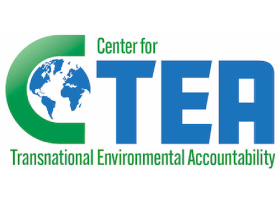The Role of China in Africa's Just Energy Transition
Submit a question
For Chinese-language version, click here/中文版请点这里
As the race intensifies to secure metals for the global energy transition, African countries, home to over 30% of the world’s mineral resources, are drawing increased attention. Chinese mineral mining operations in countries like Democratic Republic of Congo, Zimbabwe, Zambia, South Africa, Ghana, and Guinea are facing intense scrutiny over their environmental and human rights impacts. At the same time, China’s continued financing of off-grid coal-fired plants in these countries is further complicating the continent’s shift to clean energy.
Chinese investments are an important aspect of Africa’s regional economic aspirations. But to realize the economic promises of these investments requires environmental and social safeguards that ensure benefits for local communities.
This expert panel features lawyers who have been working to integrate environmental justice in Chinese overseas investments, particularly in mining and off-grid coal-fired power plants in South Africa, Ghana, Uganda, and Malawi. They will share their stories of legal cases, watchdog work, and engagement with Chinese companies. Environmental Lawyer Jingjing Zhang (Center for Transnational Environmental Accountability, CTEA) will introduce the speakers who are part of a CTEA fellowship group visiting Washington D.C.
Speaker Highlights
Mazi Choshane
We know China has for a while been trying to gain more influence in the Global South. Our President, in 2018, following the FOCAC Summit lauded this SEZ as the next biggest thing – a project that will increase jobs. There will be about 20,000 jobs created for the locals, but there haven’t been more details given about the skills needed for the jobs that will be provided. We’re told that it will create a “smart city” and that it’s something the locals of that community should look forward to. We’ve been told that billions will be invested by the Chinese in driving this project as well.
Regarding the impact that this SEZ will have – 10,000 protected indigenous trees will need to be removed for the implementation of this special economic zone. These are your indigenous Baobab trees as well as your marulas that are protected in Vhembe. 250 million liters of water will be consumed per day. 150,000 tons of coal will be burned daily by the power station. 115 tons of hazardous and industrial waste will be produced by the MMSEZ per day. And 34 million tons – is the amount of greenhouse gases the MMSEZ will emit per year.
We’ve mentioned the numbers, but we should also keep in mind the direct impact that this SEZ will have on the indigenous communities in the Vhembe District. These are communities deeply rooted in their culture, connected to the environment, and rely on it for food and water production. This special economic zone will have a major influence on them. There’s a biodiversity hotspot there with forests and rivers, and for this group of people – it's not just about the forest, it’s about how they connect to their ancestors, their sacred spaces they use for spiritual practices; all of that is important to them.
Emmanuella Doreen Kwofie
I am just going to touch a bit on what exactly Just Energy Transition is. It is a simple sentence. We are transitioning without leaving anyone behind. For me, the key word is not leaving anyone behind. So many communities and so many people have been left behind in the global conversation about Just Energy Transition. Some developed countries see it as a business, and they don’t see other impact of this whole conversation and community.
Without us, without human resources, without mineral deposits and without all the resources that we have, other countries and the whole world cannot have this conversation about energy transition.
It is also our duty as lawyers to push our government to say you need to make a voice heard, to see the kind of power you have and not to bend to every rule they said because you are looking for money from them. If the government is not doing their role, as young people we have seen the power of media and the power of advocacy. We can use those tools to drive that kind of change we want as a continent.
Gloria Majiga-Kamoto
When we look at Chinese investment right now, it is the biggest in terms of clean energy. And we should be a little worried because that may create a monopoly not only based in extraction, but encompasses the entire value chain. So that raises concerns for how we now intervene as African countries.
It’s not enough for us to take the old model of extraction for fossil fuels where it was just a grounds for extraction and processing elsewhere.
If China is dominating the whole value chain, how do we ensure that we would still have energy security. We may be providing the rare earth minerals, but if we can’t process them or bring back the resulting product, how do we ensure that Africa benefits fully in terms of accessing clean energy at affordable prices?
Samantha Atukunda Kakuru
There must be access to information so that we can be able to know what our rights are and stand for them, access to public participation so that everyone who’s involved in the transition, everyone who is involved in the effects of different investments and projects can be able to participate and benefit. No one left behind. And lastly, access to justice in the event that things are not moving the way that they should move.
In most situations like you’ve had when it comes to Chinese investments in Africa, the state, the government and China has the upper hand. They have the resources, they have the strategic plans, they have the science, and they come into extract the minerals. But while they are doing this, there is another party that’s involved and those are the communities.
In the area that this mining is taking place, the communities were actually surprised the investors had shown up, because they were not informed and they were not involved. And when they came in, they had support from both the state and the army. So we find that all of these developments are going on without their consent. But because they do not have the upper hand, it’s a David and Goliath kind of situation.
Introduction
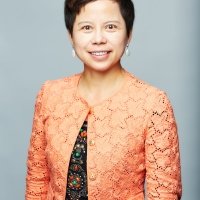
Moderator
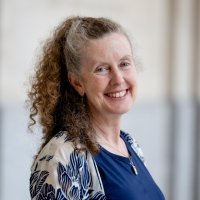
Panelists
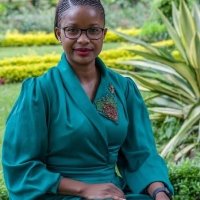
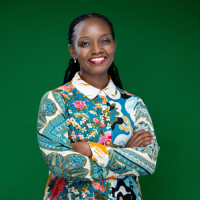
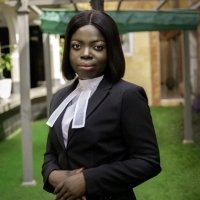
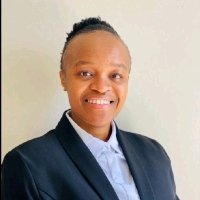
Hosted By

China Environment Forum
China’s global footprint isn’t just an economic one, it’s an environmental one. From BRI investments in Africa and Asia to its growing presence in Latin America, understanding China’s motivations, who stands to gain - and who stands to lose - is critical to informing smart US foreign policy. Read more


Environmental Change and Security Program
The Environmental Change and Security Program (ECSP) explores the connections between environmental change, health, and population dynamics and their links to conflict, human insecurity, and foreign policy. Read more


Africa Program
The Africa Program works to address the most critical issues facing Africa and US-Africa relations, build mutually beneficial US-Africa relations, and enhance knowledge and understanding about Africa in the United States. The Program achieves its mission through in-depth research and analyses, public discussion, working groups, and briefings that bring together policymakers, practitioners, and subject matter experts to analyze and offer practical options for tackling key challenges in Africa and in US-Africa relations. Read more

